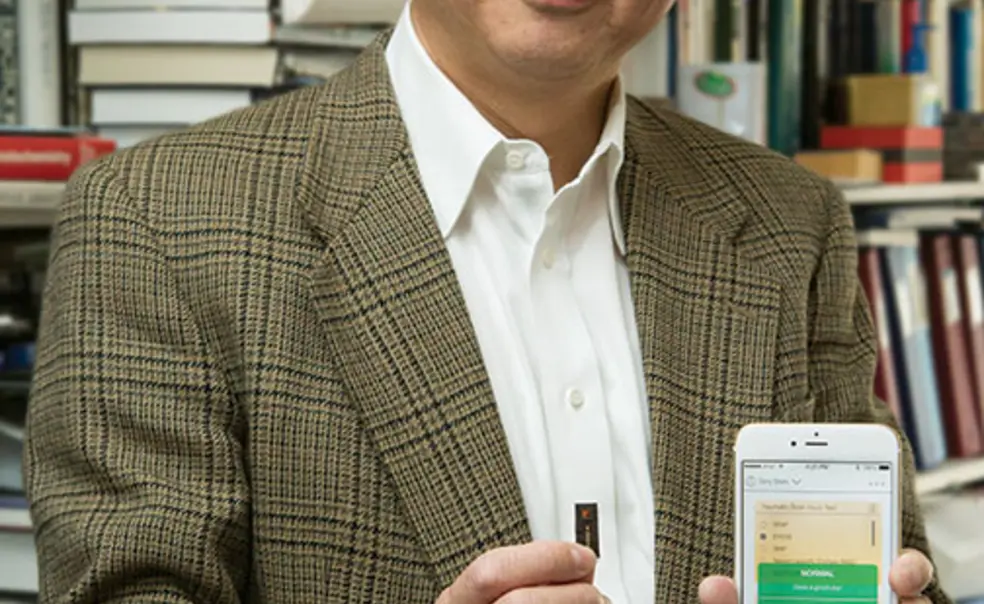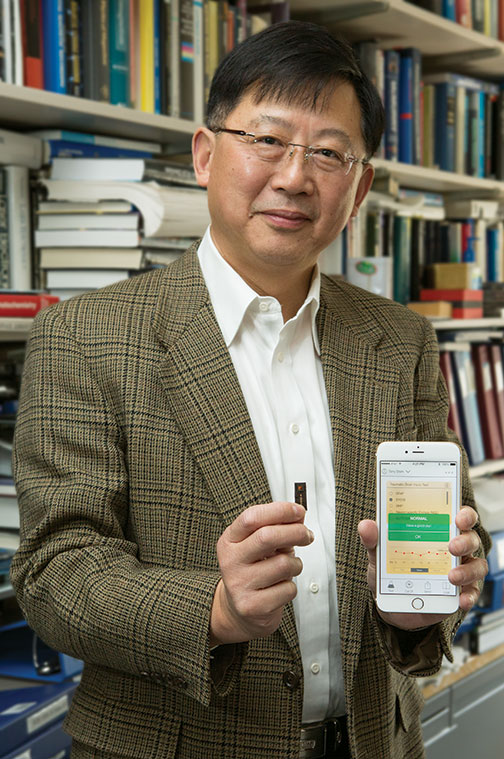Electrical Engineering: Diagnosis via Smartphone: A Faster and More Portable Blood Test
In developing countries, treatable illnesses routinely go undiagnosed because of a lack of access to sophisticated blood tests that can be performed only in laboratories. Stephen Chou, a professor of electrical engineering, is working to change that. Earlier this year, he received a $500,000 award from the University’s Eric and Wendy Schmidt Transformative Technology Fund, established by Google executive Eric Schmidt ’76 to support high-risk ideas by Princeton researchers that could have a broad impact. Chou is working on a technology that would allow smartphones to diagnose medical conditions from one drop of blood or saliva.
Today, getting a blood test requires going to the doctor, then waiting days or weeks for the results. Chou’s technology would allow public-health workers in rural areas to perform the tests and transmit the results to a doctor via smartphone. “In developing countries, there often isn’t good access to medical testing, but everyone has a cellphone,” he says. “This technology will give us a way to monitor the health of large numbers of people.”
Other researchers and companies also are working to develop ways to perform blood tests more quickly and cheaply using mobile diagnosis, but Chou’s approach is innovative. He and his team are working to develop a sophisticated sensor that could detect biological indicators — called biomarkers — that indicate certain injuries or diseases. Using a chemical reaction with blood or saliva, the sensor would determine the presence of biomarkers for traumatic brain injury, which is Chou’s focus in the initial stages of the project. One obstacle is the size of the sample needed to identify biomarkers — today, lab tests typically require about a teaspoon of blood.
Over the next year, Chou and his team will work on a system for getting blood or saliva onto the sensor’s detection area and making the detection occur within a minute. Chou will write software that allows transmission of the results through the smartphone’s camera. The user would take a photograph of the sensor, and the software would respond with an analysis of the test’s findings. Chou is working on a filter for the smartphone’s camera and flash that can identify the chemical reaction.
If the project is successful, the technology should require no formal training for the user, which would be a big step forward for mobile personal health, Chou says. He hopes to broaden the research to include other diseases.













No responses yet